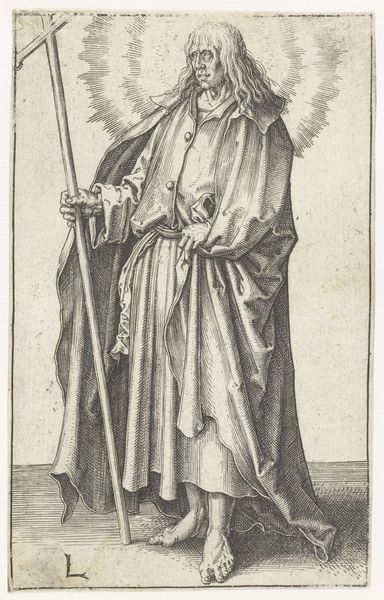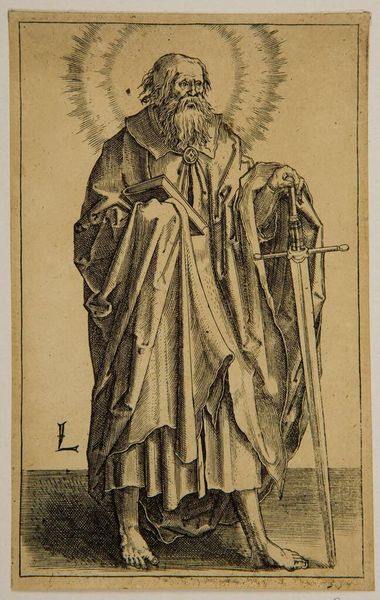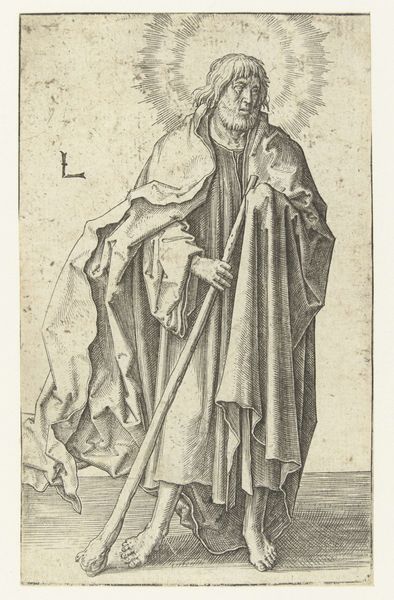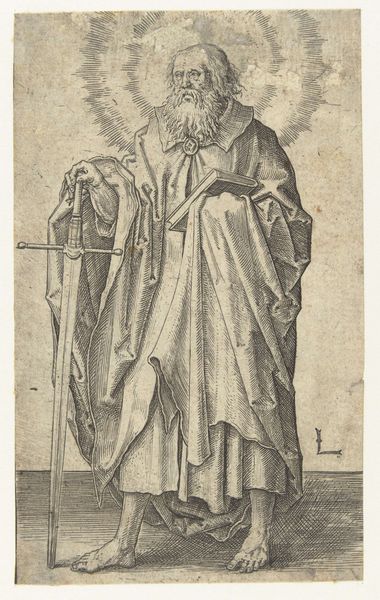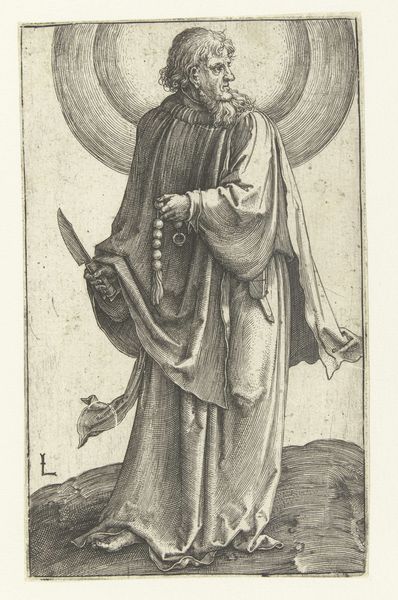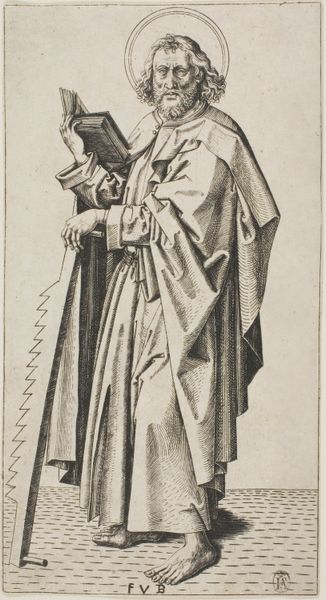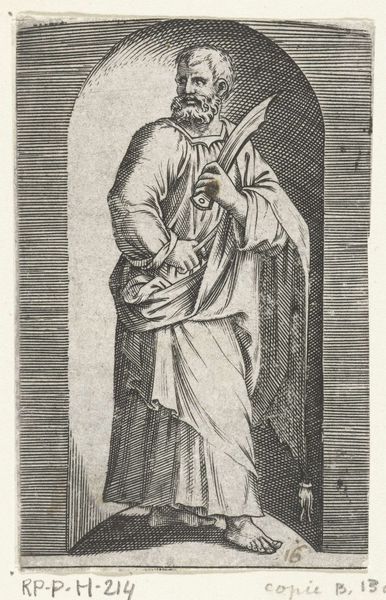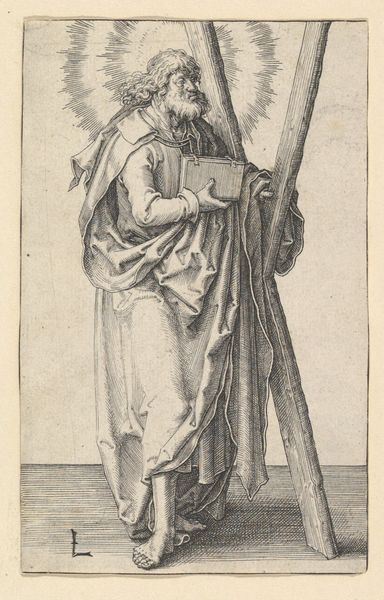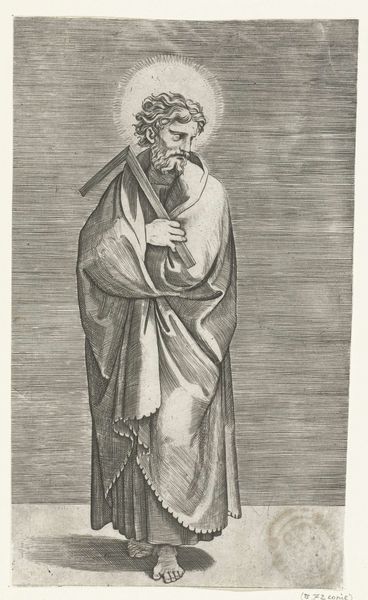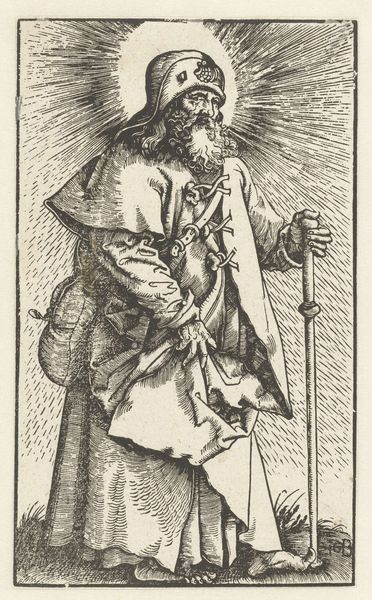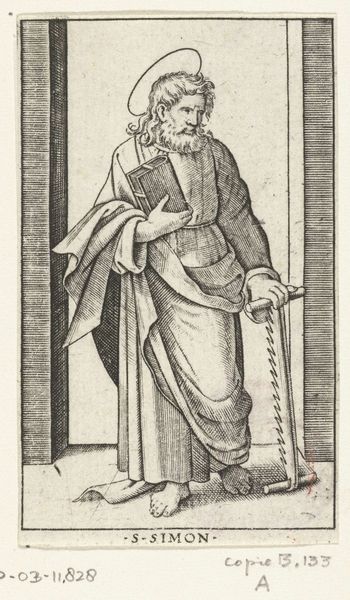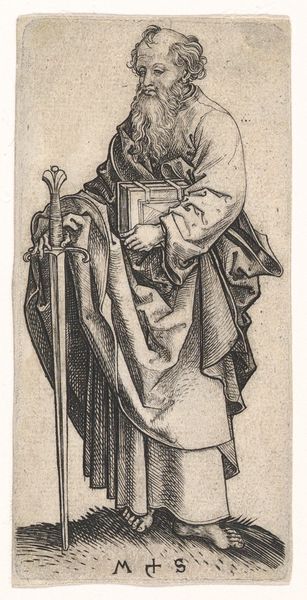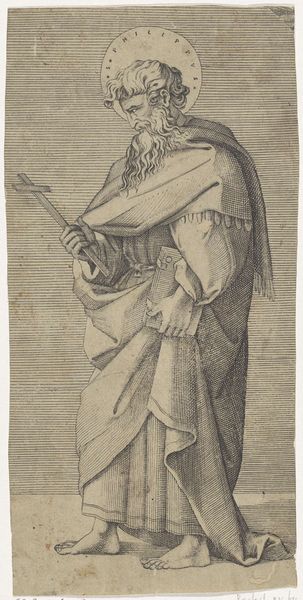
print, engraving
#
portrait
# print
#
figuration
#
portrait drawing
#
history-painting
#
italian-renaissance
#
engraving
#
sword
Dimensions: height 118 mm, width 71 mm
Copyright: Rijks Museum: Open Domain
Lucas van Leyden created this engraving of the Apostle Paul in the Netherlands, sometime in the early 16th century. As one of Christ's key followers after his death, Paul was a popular subject for artists who had to find ways to convey the saint's significance through symbolic imagery. Here, Paul is barefoot, clad in simple robes, and is set against a radiant halo. He carries a book, a reference to his authorship of key texts in the New Testament. But he also holds a large sword, a reference both to his martyrdom and to the idea of converting people to Christianity. This image speaks to the social function of religious art in the period. The Protestant Reformation was just getting underway and artworks like this played a role in shaping people's religious identities. To better understand works like this, art historians consult a range of sources, from theological texts to histories of printmaking. In this way, we gain a better understanding of the complex interplay between art, religion, and society.
Comments
No comments
Be the first to comment and join the conversation on the ultimate creative platform.
